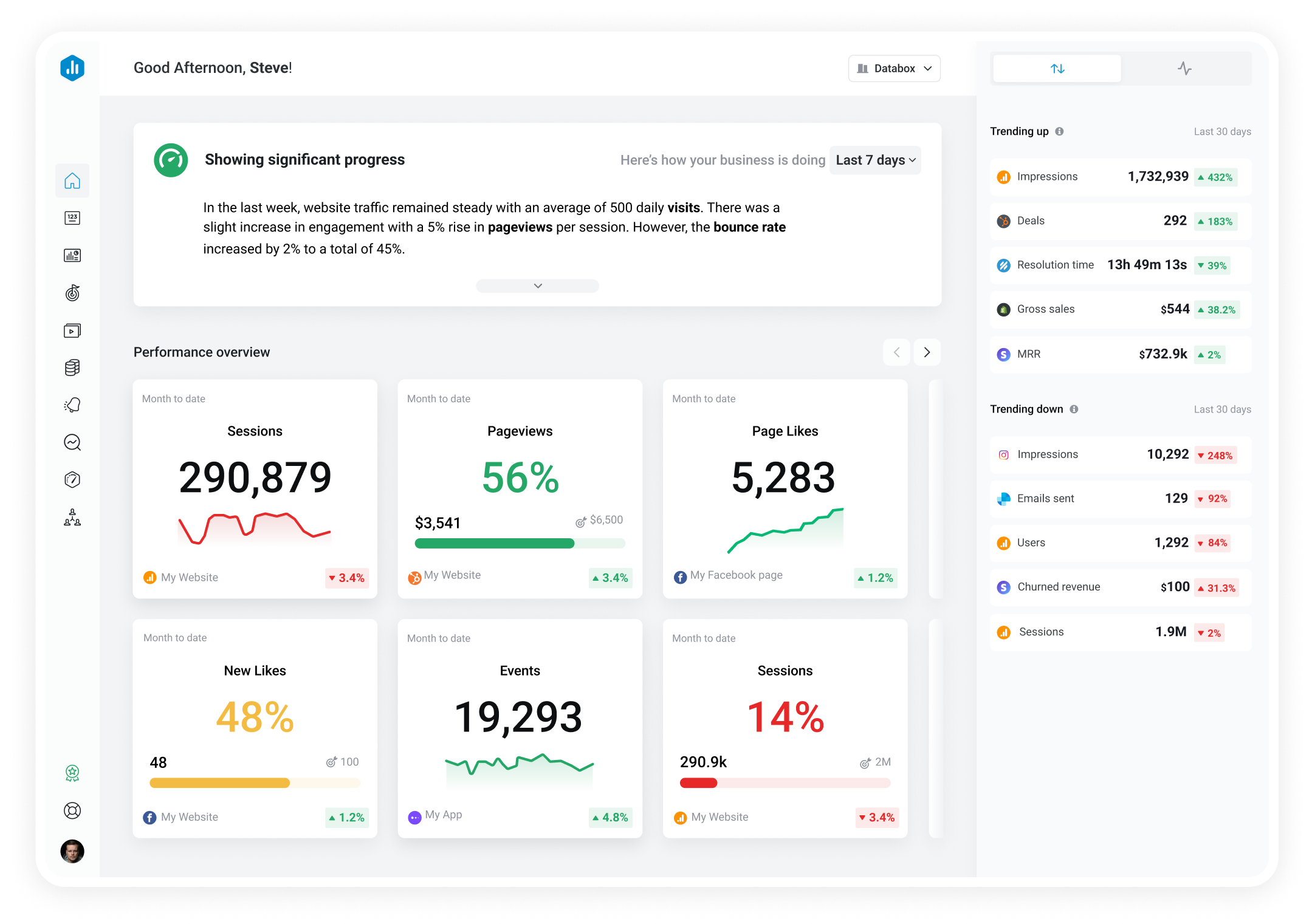Track all of your key business metrics from one screen
GET STARTED
 Shopify
Quantity by Product Vendor
Shopify
Quantity by Product Vendor The Quantity by Product Vendor metric indicates the total number of units sold for each product vendor in a given time period. It helps determine which vendors are most successful and which products are driving sales.
With Databox you can track all your metrics from various data sources in one place.

Used to show comparisons between values.
Databox is a business analytics software that allows you to track and visualize your most important metrics from any data source in one centralized platform.
To track Quantity by Product Vendor using Databox, follow these steps:
 Goals
Goals Scorecards
Scorecards Metric Digest
Metric Digest Metric Builder
Metric Builder Data Calculations
Data Calculations Performance Screen
Performance Screen